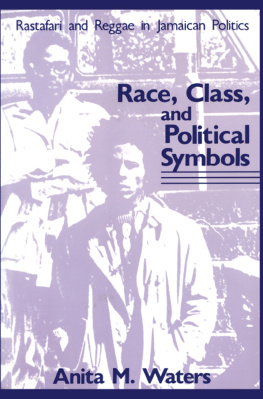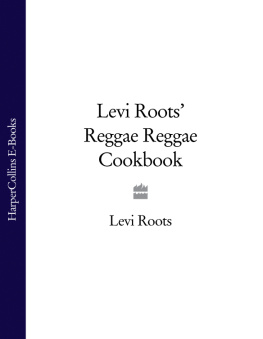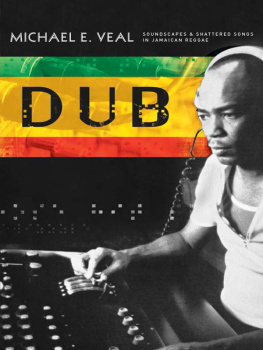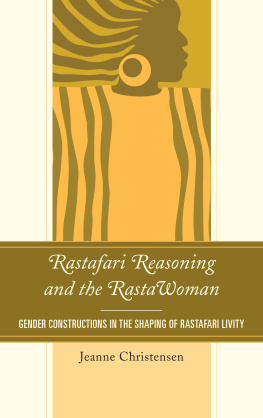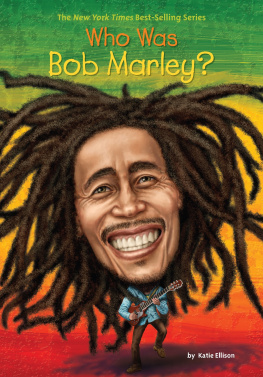First published 1985 by Transaction Publishers
Published 2017 by Routledge
2 Park Square, Milton Park, Abingdon, Oxon OX14 4RN
711 Third Avenue, New York, NY 10017, USA
Routledge is an imprint of the Taylor & Francis Group, an informa business
Copyright 1985 by Taylor & Francis.
All rights reserved. No part of this book may be reprinted or reproduced or utilised in any form or by any electronic, mechanical, or other means, now known or hereafter invented, including photocopying and recording, or in any information storage or retrieval system, without permission in writing from the publishers.
Notice:
Product or corporate names may be trademarks or registered trademarks, and are used only for identification and explanation without intent to infringe.
Library of Congress Catalog Number: 84-16264
Library of Congress Cataloging-in-Publication Data
Waters, Anita M.
Race, class, and political symbols.
Bibliography: p.
Includes index.
1. Symbolism in politicsJamaica. 2. ElectionsJamaica. 3. Political partiesJamaica. 4. Ras Tafari Movement. 5. Reggae music. I. Title.
JL639.A15W37 1985
324.9729206
84-16264
ISBN 13: 978-0-88738-632-9 (pbk)
Space does not permit me to express my full appreciation to the numerous individuals without whose assistance and cooperation this research would not have been possible. Among them:
Professor Herbert Passin guided what might be called the dub version of the manuscript in its various stages of completion and made innumerable helpful suggestions. Professor Seamus Thompson, the man with the partisan monogram, gave me considerable assistance in the earliest, and most difficult, stages of the research process. The comments and suggestions of Professors Eviatar Zerubavel and Lambros Comitas helped in putting the research report in its final form. All this books shortcomings, of course, are my own.
Would that I could here acknowledge the generous assistance of one or another wealthy foundation! This research was impulsively supported by guaranteed student loans, a fact that may enhance its credibility in direct proportion as it depletes my pocketbook.
Thanks are especially due to the Jamaicans who graciously gave their time to be interviewed for the research, and to the staff members of the Center for Policy Research, the Institute of Jamaica, and Dreadnut Cultural Arts, the institutions that provided organizational support. I would also like to thank those friends who encouraged me along the way, including Earl Panton, M.G. Mahon, Winston Thompson, Lorrel Brinkley, Doris Kitson, and my family: Henrietta, Karen, and O. Waters.
I would also like in particular to mention Neville Livingstone, with whom I never had the opportunity to speak, but whose work provided inspiration for this research and at whose indirect invitation I share my words with my fellow beings. Thanks and praises to all the singers and players of instruments.
This book is fondly dedicated to my husband, Fragano Ledgister, without whose love, patience and persistent urging it would truly never have been written.
Preacher man dont tell me heaven is under the earth
I know you dont know what life is really worth
Its not all that glitters is gold
Half the history has never been told
And now that the children have seen the light
Theyre gonna stand up for their right.
Bob Marley, Get Up Stand Up
The report was true which I heard in my own land
of your affairs and of your wisdom, but I did not
believe the reports until I came and
my own eyes had seen it, and behold,
the half was not told me;
your wisdom and prosperity surpass
the report which I have heard.
Queen of Sheba to Solomon, 1 Kings 10: 6-7
Scanty history, when revealed as such, is oppressive in retrospect. The consequences that the revelation triggers often demonstrate how deeply patterns of social interaction, justifications of dominance and submission, religious ideas, the very meaning of social existence, are rooted in historical consciousness.
Such a revelation, without taking account yet of its relative truth, gradually emerged in the island of Jamaica, in the 1930s and thereafter. It became apparent that when the Europeans enslaved the Africans, they appropriated the Amharic history of the African peoples. In their inept fumbling with that complex language, and recognizing the opportunity to deceive the slaves about their true origins and history, the Europeans omitted large and important tracts in the English version. As one of those cognizant of the revelation said, The white man buck up words that he cant really translate. So in the Bible only half has been told. Still theres a half that you never really know (quoted in Owens 1976, 31).
Deep study of that document and of prophesies made since further revealed that the true Messiah was not Jesus of Nazareth but the Emperor Haile Selassie I of Ethiopia, the descendant of King Solomon and Queen Makeda of Sheba, and thus a living man of the House of David, exactly as the Old Testament foretold. This was the crucial half of the story. Given an almost psychoanalytical propensity for discounting coincidences, the fact that Selassies forebear herself was the one to hint that there was more than met the eye caused no surprise.
Further corollaries were derived. It became obvious, for example, that the true reason that the British monarch Edward VIII abdicated the throne in 1936 was that he had been present at the emperors coronation and had recognized in him the rightful ruler of all Africans, including those in the British colonies. Over time a body of knowledge about Emperor Selassie was codified, gleaned from various, incomplete sources: a few books and photographs, a ragged issue of National Geographic, a rumor, a prophesy.
The reaction to the revelations varied: there was anger at the deception; withdrawal to await Selassies call to return to the homeland; an insatiable interest in Ethiopian language, gestures, and artifacts; a growing skepticism about all European truths and values; and a deeply felt dissatisfaction with the distribution of power in society. As yeast in the dough, the implications of the beliefs, if not the beliefs themselves, shook the society, and a means of disseminating the beliefs eventually reverberated throughout the world.
This book is also a partial history, an examination of the consequences that these revelations and developments had for the politics of one Third World nation, especially its electoral politics. International reportage about these political developments has truly told somewhat less than half the story; raw voting statistics and simple statements of electoral outcomes give no indication of the colorful and complex machinations that determine them.
Jamaica is a postcolonial, plural society with a high degree of economic inequality. Its two political parties, the Jamaica Labour Party (JLP) and the Peoples National Party (PNP), are highly competitive and enjoy comparable success in the electoral arena.
Beginning in 1972, it has been noted, Jamaican political parties have frequently used Rastafarian symbols and reggae music in their electoral propaganda. The Rastafarians are the millenarian cult that accepts Selassie as the Messiah and constitutes about 3 percent of Jamaicas population; reggae music is an indigenous popular art form associated with, and frequently propagating the beliefs of, Rastafarians. Two students of Caribbean political science noted this trend after Michael Manleys electoral victory in 1972. The group that inherited political power after independence, they wrote,


